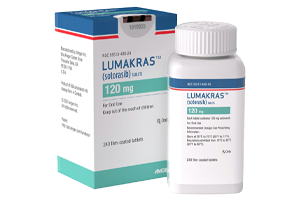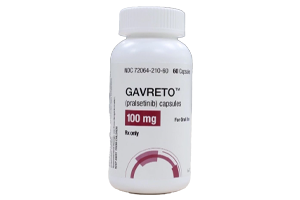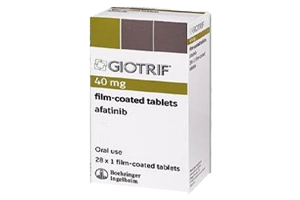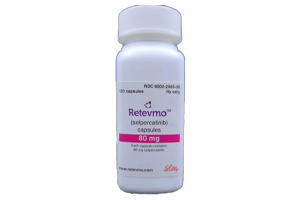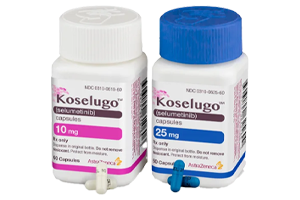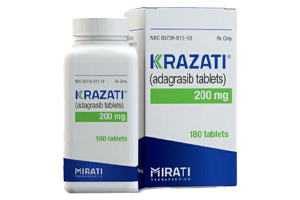Sotorasib英文说明书
发布时间: 2024-11-22 10:58:07 文章来源:找药网 推荐人数: 1008
Sotorasib, a revolutionary therapeutic agent targeting non-small cell lung cancer (NSCLC) with a specific mutation in the KRAS gene, represents a significant milestone in precision oncology. This innovative medication offers a tailored treatment option for patients whose tumors harbor the KRAS p.G12C mutation, a historically difficult-to-treat subset of NSCLC. The following article delves into the comprehensive details of Sotorasib's English prescribing information, highlighting its mechanism of action, clinical efficacy, safety profile, and special considerations for its use.
Sotorasib: A Pioneering KRAS p.G12C Inhibitor
Sotorasib marks a paradigm shift in the management of KRAS-mutated NSCLC by directly addressing the underlying genetic driver of the disease. This section explores the essence of Sotorasib's therapeutic intervention, its clinical trial outcomes, and the patients it is designed to benefit.
Mechanism of Action
Sotorasib is a covalent inhibitor that irreversibly binds to the KRAS p.G12C mutant protein, locking it in an inactive conformation. This mechanism disrupts the signaling pathways that promote cell growth and proliferation, thereby inhibiting tumor progression. By selectively targeting the mutated KRAS protein, Sotorasib minimizes off-target effects and enhances therapeutic specificity.
Clinical Efficacy
In pivotal Phase I/II trials, Sotorasib demonstrated robust antitumor activity with durable responses in patients with KRAS p.G12C-mutated NSCLC who had progressed on prior therapies. The trial results showed a significant improvement in progression-free survival and overall survival, offering hope to patients previously lacking effective treatment options. These findings underscore Sotorasib's potential to transform the treatment landscape for this patient population.
Patient Selection and Benefit
Patient selection for Sotorasib therapy is critical, as its efficacy is limited to those with confirmed KRAS p.G12C mutations. Genetic testing is essential to identify eligible patients, ensuring that the benefits of Sotorasib are accurately targeted to those most likely to respond. This precision medicine approach aligns with the evolving paradigm of personalized cancer care.
Safety Profile and Special Considerations
Understanding the safety profile of Sotorasib and recognizing potential risks and mitigation strategies is crucial for safe and effective use. This section discusses the common adverse events associated with Sotorasib, special populations, and dose modifications.
Common Adverse Events
In clinical trials, Sotorasib was generally well-tolerated, with the most common adverse events including diarrhea, muscle pain, nausea, fatigue, and liver function abnormalities. These side effects were manageable with appropriate monitoring and supportive care measures. Healthcare providers should be vigilant in assessing patient symptoms and adjusting treatment plans as needed.
Special Populations
Use of Sotorasib in special populations, such as elderly patients, those with renal or hepatic impairment, and pregnant or lactating women, requires careful consideration. Adjustments in dosing or monitoring may be necessary to ensure safe administration. Close collaboration between oncologists, pharmacists, and other healthcare professionals is essential to tailor treatment plans to individual patient needs.
Dose Modifications and Management
For patients experiencing severe adverse reactions or laboratory abnormalities, dose modifications or interruptions may be necessary. Guidelines for dose reductions and resumption of therapy are detailed in the prescribing information, providing a framework for managing side effects while maximizing therapeutic benefit. Regular monitoring of blood counts, liver function tests, and other relevant parameters is essential to promptly identify and manage potential toxicities.
In conclusion, Sotorasib represents a groundbreaking advance in the treatment of KRAS p.G12C-mutated NSCLC, offering patients a novel and targeted therapeutic option. By understanding its mechanism of action, clinical efficacy, safety profile, and special considerations for use, healthcare providers can optimize treatment strategies, ensuring that patients receive safe and effective care tailored to their unique needs. The continued evolution of precision oncology holds promise for further advancements in the management of this challenging disease.
相关文章
推荐文章
相关文章
索托拉西布中文详细说明书,医保,价格,疗效,副作用
索托拉西布(Sotorasib)是一种针对KRAS G12C突变靶点的靶向药物,属于小分子抑···【详情】
推荐指数:11002025-04-11
索托拉西布有哪些副作用?怎么缓解?
索托拉西布是一种针对KRAS突变的靶向治疗药物,广泛应用于肺癌的治疗中。然而,在使用这种药物···【详情】
推荐指数:11012025-04-11
索托拉西布的副作用是什么
索托拉西布(Sotorasib)是一种靶向治疗非小细胞肺癌(NSCLC)的新型药物,其主要针···【详情】
推荐指数:11012025-04-11
索托拉西布中国上市情况
索托拉西布是一种靶向药物,专门用于治疗携带KRAS G12C突变的非小细胞肺癌患者。这种药物···【详情】
推荐指数:11022025-04-11
索托拉西布国内能买到吗?多少钱?
< p >索托拉西布是一种靶向药物,近年来因其显著的治疗效果而备受关注。在全球范围内,尤其是···【详情】
推荐指数:11012025-04-11
索托拉西布(AMG510)上市了吗?怎么买?
在癌症治疗领域,索托拉西布(AMG510)以其对KRAS G12C突变的显著疗效引起了广泛关···【详情】
推荐指数:11022025-04-11
Sotorasib贵吗?多少钱?
Sotorasib是一种用于治疗携带KRAS G12C突变的非小细胞肺癌患者的靶向药物。这种···【详情】
推荐指数:11002025-04-11
Sotorasib在国内价格情况
Sotorasib是一种针对KRAS G12C突变的靶向治疗药物,其高昂的价格往往成为患者关···【详情】
推荐指数:11012025-04-11
